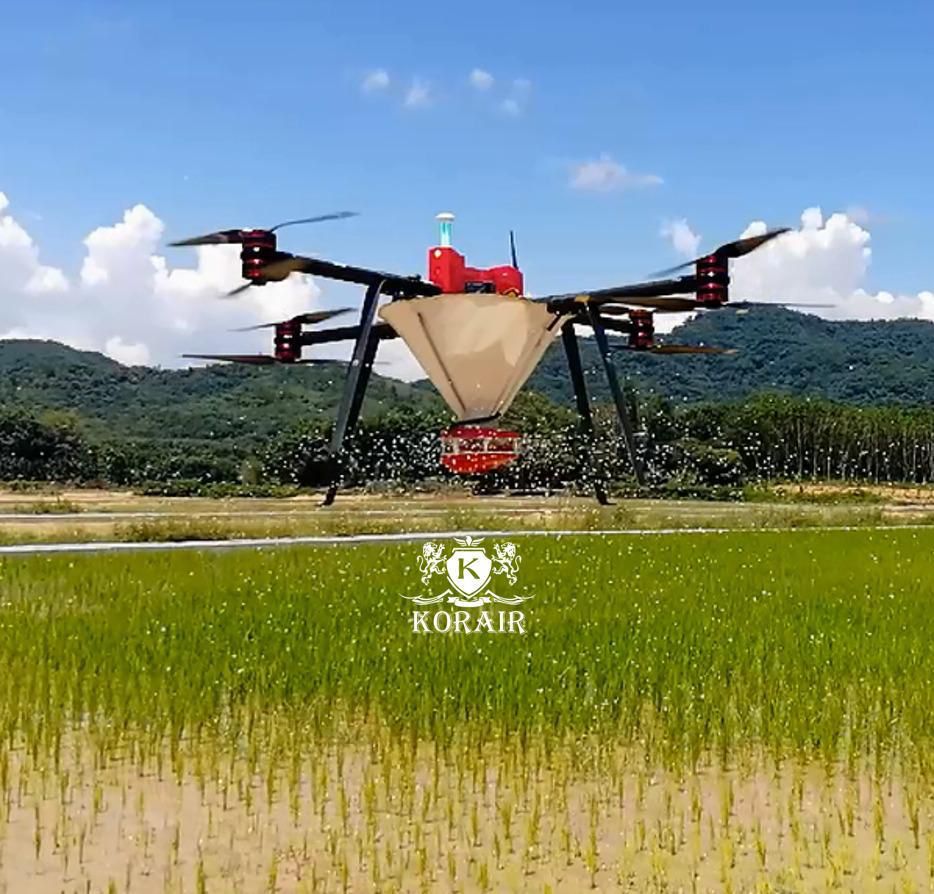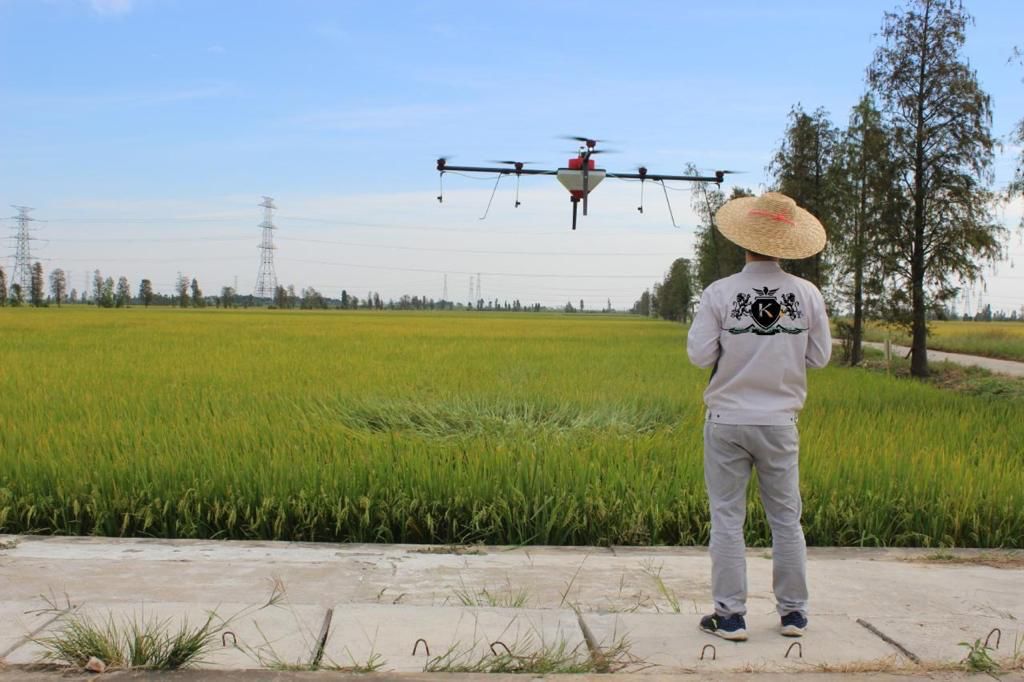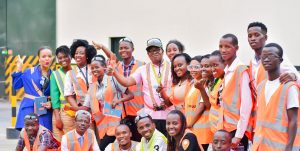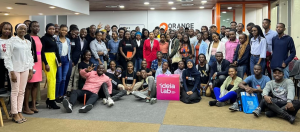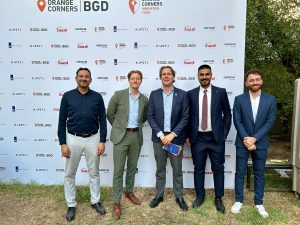Our goal is to modernise agriculture and other sectors using multifunctional drones, and the only way forward is to keep working on our project.
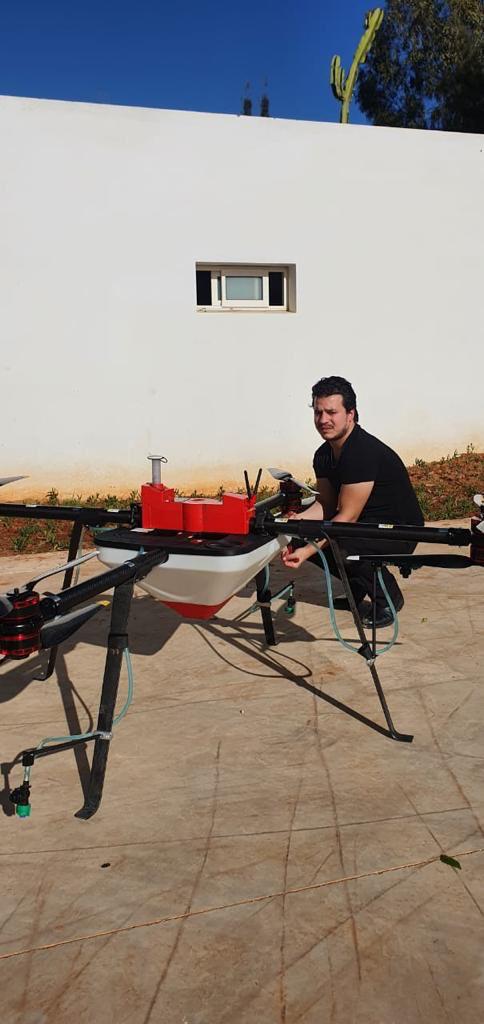
Born in a family of farmers, Mohamed Belkora was standing in the middle of 260 hectares of farmland in Rabat, Morocco, when we interviewed him. Showing trees setting fruit such as apple, peaches and grenadines, he was testing and improving drones. Agriculture in Morocco, contributing 15 per cent to its country’s GDP, faces difficulties due to cumbersome agricultural machinery. Therefore, Mohamed’s expertise is highly beneficial to further advance agricultural farming by using modern and innovative technology. Combining agriculture and his far-reaching ambition in aerospace engineering, he only launched Korair two years ago. OCHQ asked him to know more about his passion for Agri-Tech.
I applied for the Orange Corners programme in Morocco at the beginning of 2021. The programme helped me to improve my business and management knowledge and expanded my network.
Could you tell us a bit more about yourself and your start-up?
“I am Mohamed, co-founder of the Moroccan Aerospace institute where my partner and I worked on manufacturing drones. But I had high ambitions: creating my own company. Aerospace engineering and manufacturing drones has always been my passion. My start-up, Korair, a portmanteau of Kora (from my family name Belkora) and air, is related to my aerospace engineering studies. It is an innovative company in pesticides application that supports farmers in crop spraying, a method that is faster and more environmental-friendly than traditional ways of pesticide application. We help our direct agricultural environment in increasing their productivity and improving their carbon footprint. I came up with the idea almost three years ago. Real result takes time. I hope this is only the beginning.”
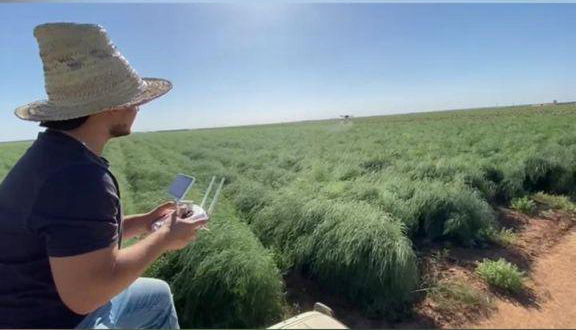
The problems that our start-up combats are (water) waste and environmental pollution. We also reduce the risk of fire and improve efficiency by serving as a substitute for traditional equipment.
Could you tell us briefly what Korair does?

“We manufacture electric drones, which are unmanned aerial vehicles (UAV) in order to advance farming practices. Our drones are very efficient, 100 times more efficient than any traditional methods such as tractors and spraying with hand-held equipment. The benefits of using our drones are countless, such as emitting less CO2 thanks to the use of electrical energy instead of diesel. By using drones we can outreach more than 30 hectares of farmland a day, so spreading speed is extremely fast. It is very effective for non-resistant insect that are so fast that you cannot kill them with traditional methods. We spray them with a machine using ultra low volume (ULV). This is a new technology, dispersing very small droplets (0.2 micrometers) of insecticide liquid spray, making it easier for the plants to absorb the pesticides.
Other strengths of our drones are that there is no contact between the manipulator and the drone. This reduces the risk of poisoning the pesticide handler or cause cancer health effects for the people engaged in the activity of spreading pesticides. Also, by using technology we assure that there are never parts omitted. Lastly, by using drones there is less soil pollution as we do the spraying based on drone image recognition, and therefore know exactly where the plants are.”
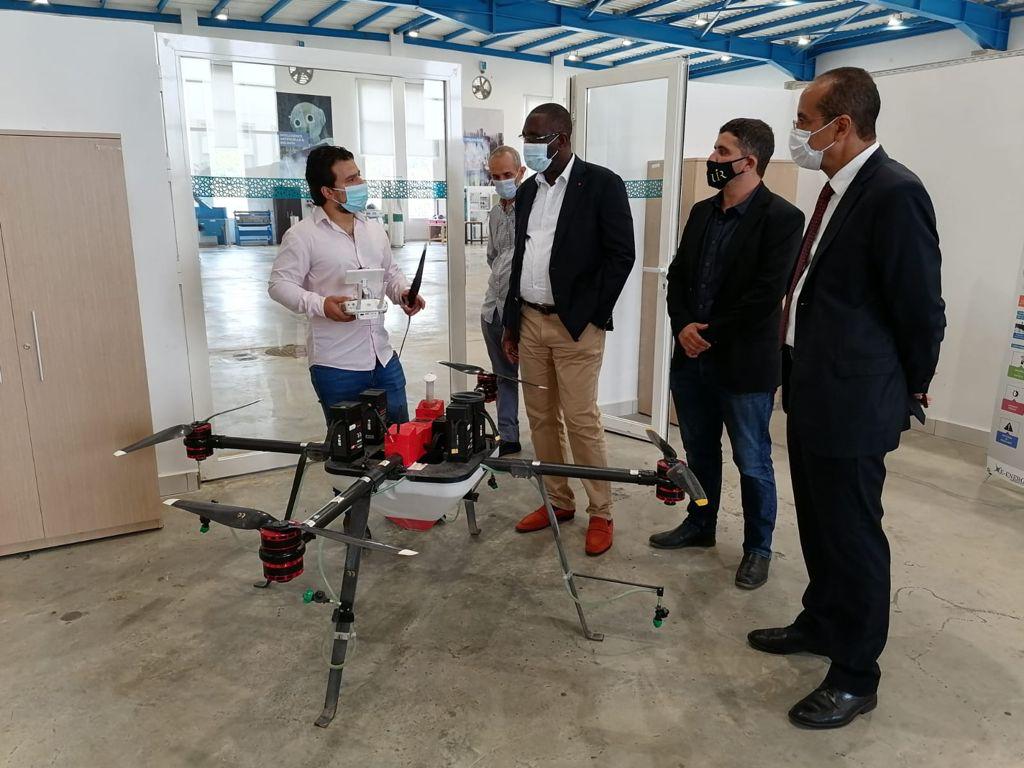
Which problem does you tackle with your start-up?
The problems that our start-up combats are (water) waste and environmental pollution. We also reduce the risk of fire and improve efficiency by serving as a substitute for traditional equipment. We can save the equivalent of the annual water consumption of 70,000 inhabitants by just using drones. We use 90 to 99 per cent less water, using 20 to 40 litres in comparison to the 1500 litres per hectare that tractors spend.
Moreover, The three 100 per cent electric drones and seven thermal helicopter drones we have, emit zero greenhouse gas emissions. They spray pesticides and fertilisers and are also able to process imaging drone inspections, exploration and research for firefighter, topographers and foresters. What we do goes beyond dispersing liquid spray. I think, with an eye on the future, it is important for Morocco to foresee how it will cultivate its 8.7 million hectare of agricultural land.”

Which kind of difficulties do you face when using drones?
“The difficult part of the job is manipulating the drones. It requires technical knowledge, concentration and determination. Obtaining authorisations and licences for flying in Morocco have become very difficult after an incident in 2017, where Mexican tourists flew over the Royal Palace and various other sensitive sites in Rabat to take pictures. We also face a lot of international competition and manufacturers but that does not discourage to continue working on what we are able to do locally.”
I would not only like to increase my skills but also develop my transferable skills, working with others to advance agriculture drone software development.
When did you apply for the Orange Corners Programme?
“I applied for the Orange Corners programme in Morocco at the beginning of 2021. It helped me to improve my business and management knowledge and expanded my network. I also got to meet the Directorate of Scientific Intelligence (DSI) of Ministry of Agriculture, which was really interesting and an eye-opening experience.”
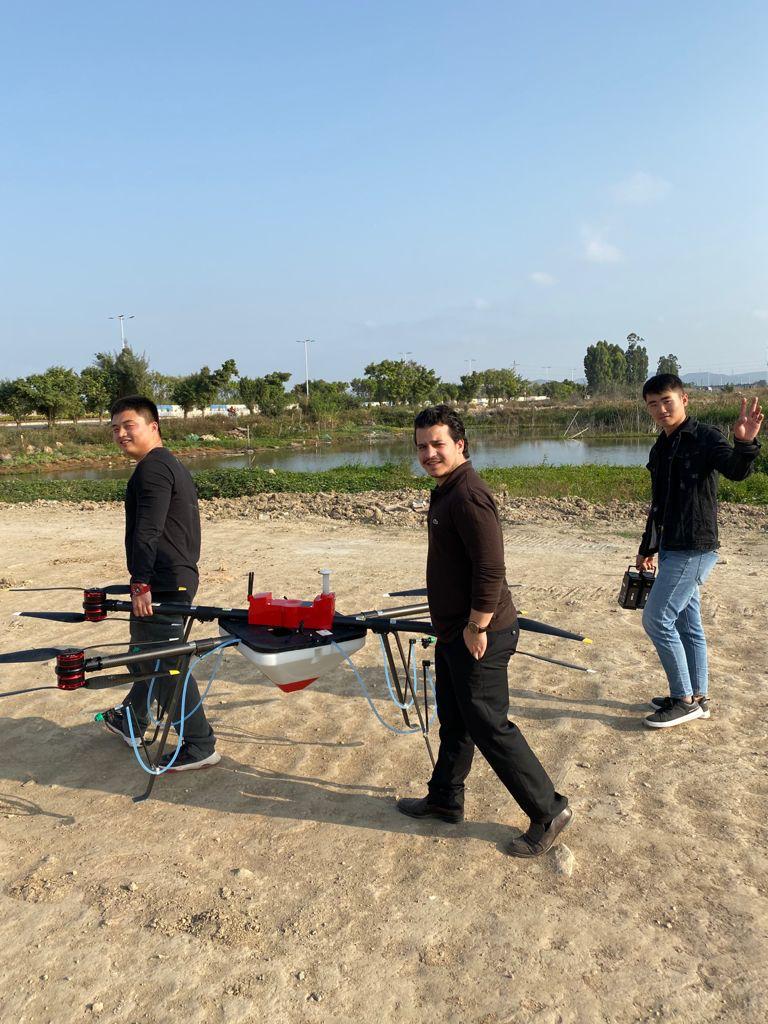
What do you wish to achieve with Korair?
“I would not only like to increase my skills but also develop my transferable skills, working with others to advance agriculture drone software development. The goal of Korair is to modernise agriculture using multifunction drones and hopefully, in the future, also other sectors. The only way forward is to keep working on our project. I am curious to see what the future holds for us.”
With an eye on the future, Morocco has to take into consideration how it will cultivate its 8.7 million hectare of agricultural land.”
How can we know more about Korair?
